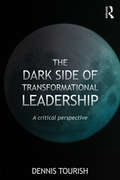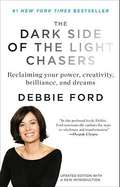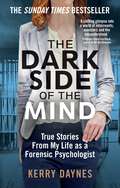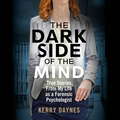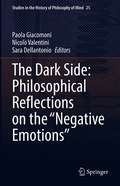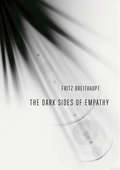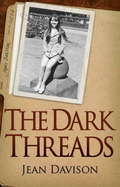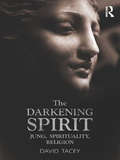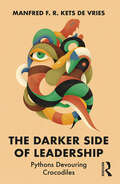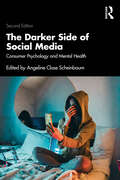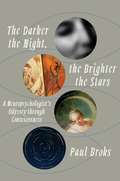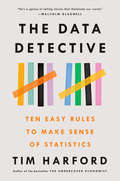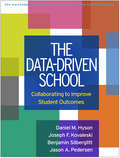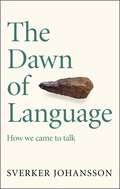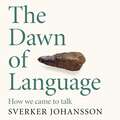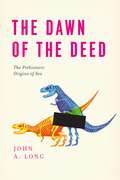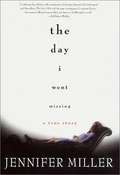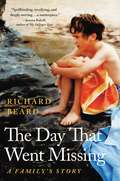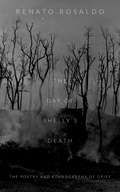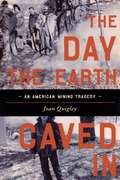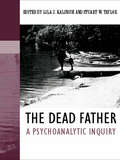- Table View
- List View
The Dark Side of Transformational Leadership: A Critical Perspective
by Dennis TourishMost research into leadership has presented leaders as heroic, charismatic and transformational ‘visionaries’. The leader, whether in business, politics or any other field, is the most important factor in determining whether organizations succeed or fail. Indeed, despite the fundamental mistakes which have, arguably, directly led to global economic recession, it is often still taken for granted that transformational leadership is a good thing, and that leaders should have much more power than followers to decide what needs to be done. The Dark Side of Transformational Leadership confronts this orthodoxy by illustrating how such approaches can encourage narcissism, megalomania and poor decision-making on the part of leaders, at great expense to those organizations they are there to serve. Written in a lively and engaging style, the book uses a number of case studies to illustrate the perils of transformational leadership, from the Jonestown tragedy in 1978 when over 900 people were either murdered or committed suicide at the urging of their leader, to an analysis of how banking executives tried to explain away their role in the 2008 financial crisis This provocative and hugely important book offers a rare critical perspective in the field of leadership studies. Concluding with a new approach that offers an alternative to the dominant transformational model, The Dark Side of Transformational Leadership will be an invaluable text for academics interested in leadership, students on leadership courses requiring a more critical perspective, and anyone concerned with how people lead people, and the lessons we can learn.
The Dark Side of the Light Chasers
by Deborah FordThe bestselling, beloved classic on how to go into the dark side of yourself to bring out the light -- now with new material.Debbie Ford believes that we each hold within us a trace of every human characteristic that exists, the capacity for every human emotion. We are born with the ability to express this entire spectrum of characteristics. But, Ford points out, our families and our society send us strong messages about which ones are good and bad. So when certain impulses arise, we deny them instead of confronting them, giving them a healthy voice, then letting them go.It is to these feelings that Ford turns our attention, these parts of our selves that don't fit the personae we have created for the rest of the world. She shows us the effects of living in the dark, of keeping all our supposedly unsavory impulses under wraps. We find ourselves disproportionately frustrated and angry at the selfishness of friends, the laziness of colleagues, the arrogance of siblings. When we are unable to reconcile similar impulses in ourselves, Ford explains, we waste our own energy judging others instead of empathizing. But most important, we deny ourselves the power and freedom of living authentically.Through the stories and exercises in The Dark Side of the Light Chasers, Debbie Ford shows us not only how to recognize our hidden emotions, but also how to find the gifts they offer us. This is for fans of Marianne Williamson, Neale Donald Walsch, and Deepak Chopra. The very impulses we most fear may be the key to what is lacking in our lives.
The Dark Side of the Mind: True Stories from My Life as a Forensic Psychologist
by Kerry DaynesTHE SUNDAY TIMES BESTSELLER**OUT NOW: WHAT LIES BURIED. THE SENSATIONAL NEW BOOK BY KERRY DAYNES**'Enthralling and terrifying. The Dark Side of the Mind is a chilling glimpse into a world of miscreants, monsters and the misunderstood.' Professor Dame Sue Black, author of the Sunday Times bestseller All That Remains'A stunning, insightful, provocative piece of work. Wonderfully written and full of honesty. A powerful excavation of the world of a forensic psychologist.' Barbara Machin, creator and writer of Waking The Dead 'Kerry Daynes delves into the minds of psychopaths in a fascinating memoir.' Katya Edwards, Daily Mail 'Daynes offers fascinating insights into what makes criminals tick and how they might be more effectively treated. Her book is funny, wise and thoroughly gripping.' Jake Kerridge, writer and critic 'Grimly fascinating - a timely and gripping exploration of mental health issues in the criminal justice system from an author intimately acquainted with its dark heart.' Harriet Tyce, author of Blood Orange 'Kerry Daynes writes with knowledgeable insight on a side of people - and the criminal system that purports to treat them - that many would prefer to leave alone. The humour and psychological skills that have enabled her survival shine through.' Jessica Fellowes, author of The Mitford Murders Welcome to the world of the forensic psychologist, where the people you meet are wildly unpredictable and often frightening. The job: to delve into the psyche of convicted men and women to try to understand what lies behind their often brutal actions. Follow in the footsteps of Kerry Daynes, one of the most sought-after forensic psychologists in the business and consultant on major police investigations. Kerry's job has taken her to the cells of maximum-security prisons, police interview rooms, the wards of secure hospitals and the witness box of the court room. Her work has helped solve a cold case, convict the guilty and prevent a vicious attack. Spending every moment of your life staring into the darker side of life comes with a price. Kerry's frank memoir gives an unforgettable insight into the personal and professional dangers in store for a female psychologist working with some of the most disturbing men and women. If you enjoyed Unnatural Causes, When the Dogs Don't Bark and Prison Doctor you'll love Kerry's gripping account of her experience as a forensic psychologist.
The Dark Side of the Mind: True Stories from My Life as a Forensic Psychologist (Kerry Daynes’ True Stories of Forensic Psychology)
by Kerry DaynesTHE SUNDAY TIMES BESTSELLER **OUT NOW: WHAT LIES BURIED. THE SENSATIONAL NEW BOOK BY KERRY DAYNES** 'Enthralling and terrifying. The Dark Side of the Mind is a chilling glimpse into a world of miscreants, monsters and the misunderstood.' Professor Dame Sue Black, author of the Sunday Times bestseller All That Remains'A stunning, insightful, provocative piece of work. Wonderfully written and full of honesty. A powerful excavation of the world of a forensic psychologist.' Barbara Machin, creator and writer of Waking The Dead'Kerry Daynes delves into the minds of psychopaths in a fascinating memoir.' Katya Edwards, Daily Mail Welcome to the world of the forensic psychologist, where the people you meet are wildly unpredictable and often frightening. The job: to delve into the psyche of convicted men and women to try to understand what lies behind their often brutal actions. Follow in the footsteps of Kerry Daynes, one of the most sought-after forensic psychologists in the business and consultant on major police investigations. Kerry's job has taken her to the cells of maximum-security prisons, police interview rooms, the wards of secure hospitals and the witness box of the court room. Her work has helped solve a cold case, convict the guilty and prevent a vicious attack. Spending every moment of your life staring into the darker side of life comes with a price. Kerry's frank memoir gives an unforgettable insight into the personal and professional dangers in store for a female psychologist working with some of the most disturbing men and women. If you enjoyed Unnatural Causes, When the Dogs Don't Bark and My Life With Murderers, you'll love Kerry's gripping account of her experience as a forensic psychologist.(p) 2019 Octopus Publishing Group
The Dark Side: Philosophical Reflections on the “Negative Emotions” (Studies in the History of Philosophy of Mind #25)
by Sara Dellantonio Paola Giacomoni Nicolò ValentiniThis book takes the reader on a philosophical quest to understand the dark side of emotions. The chapters are devoted to the analysis of negative emotions and are organized in a historical manner, spanning the period from ancient Greece to the present time. Each chapter addresses analytical questions about specific emotions generally considered to be unfavorable and classified as negative. The general aim of the volume is to describe the polymorphous and context-sensitive nature of negative emotions as well as changes in the ways people have interpreted these emotions across different epochs. The editors speak of ‘the dark side of the emotions’ because their goal is to capture the ambivalent – unstable and shadowy – aspects of emotions. A number of studies have taken the categorial distinction between positive and negative emotions for granted, suggesting that negative emotions are especially significant for our psychological experience because they signal difficult situations. For this reason, the editors stress the importance of raising analytical questions about the valence of particular emotions and focussing on the features that make these emotions ambivalent: how – despite their negativity – such emotions may turn out to be positive. This opens up a perspective in which each emotion can be understood as a complex interlacing of negative and positive properties. The collection presents a thoughtful dialogue between philosophy and contemporary scientific research. It offers the reader insight by illuminating the dark side of the emotions.
The Dark Sides of Empathy
by Fritz BreithauptMany consider empathy to be the basis of moral action. However, the ability to empathize with others is also a prerequisite for deliberate acts of humiliation and cruelty. In The Dark Sides of Empathy, Fritz Breithaupt contends that people often commit atrocities not out of a failure of empathy but rather as a direct consequence of over-identification and a desire to increase empathy. Even well-meaning compassion can have many unintended consequences, such as intensifying conflicts or exploiting others.Empathy plays a central part in a variety of highly problematic behaviors. From mere callousness to terrorism, exploitation to sadism, and emotional vampirism to stalking, empathy all too often motivates and promotes malicious acts. After tracing the development of empathy as an idea in German philosophy, Breithaupt looks at a wide-ranging series of case studies—from Stockholm syndrome to Angela Merkel's refugee policy and from novels of the romantic era to helicopter parents and murderous cheerleader moms—to uncover how narcissism, sadism, and dangerous celebrity obsessions alike find their roots in the quality that, arguably, most makes us human.
The Dark Threads
by Jean DavisonTeenage life in the swinging sixties, hanging out in coffee bars talking fashion and pop music, who could wish for more? But in August 1968, growing pains started to kick hard for 18-year-old office worker Jean Davison and adolescent idealism quickly turns to angst and emptiness.With her home life in chaos, Jean turns to a psychiatrist hoping for a sensible adult to talk to. That’s where her problems really begin: a week’s voluntary psychiatric rest is the start of one long nightmare of drugs, electric shock treatment and abuse which turn her into a zombie.Losing five years of her young life to the mental health system, Jean finally finds the courage to say “no” to drugs and turns her life around, finds love and returns to the mental health service as a worker.Balancing quotes from case number 10826, her actual case notes which reveal a diagnosis of chronic schizophrenia, with her own account of interviews with doctors, this memoir raises disturbing questions on the treatment of psychiatric patients, which are still relevant todayJean Davison, was born in 1950 into a working class family in Yorkshire She left school at 15 to work in a factory. After leaving the psychiatric system she returned to education to study for GCEs. She has worked as a secretary for the NSPCC and within the health service. In 1979 she met Ian who she later married. She later graduated from university with a first-class degree in literature and psychology. Still living in Yorkshire with Ian, she now works in mental health. The Dark Threads is her first book.
The Dark Threads
by Jean DavisonTeenage life in the swinging sixties, hanging out in coffee bars talking fashion and pop music, who could wish for more? But in August 1968, growing pains started to kick hard for 18-year-old office worker Jean Davison and adolescent idealism quickly turns to angst and emptiness.With her home life in chaos, Jean turns to a psychiatrist hoping for a sensible adult to talk to. That’s where her problems really begin: a week’s voluntary psychiatric rest is the start of one long nightmare of drugs, electric shock treatment and abuse which turn her into a zombie.Losing five years of her young life to the mental health system, Jean finally finds the courage to say “no” to drugs and turns her life around, finds love and returns to the mental health service as a worker.Balancing quotes from case number 10826, her actual case notes which reveal a diagnosis of chronic schizophrenia, with her own account of interviews with doctors, this memoir raises disturbing questions on the treatment of psychiatric patients, which are still relevant todayJean Davison, was born in 1950 into a working class family in Yorkshire She left school at 15 to work in a factory. After leaving the psychiatric system she returned to education to study for GCEs. She has worked as a secretary for the NSPCC and within the health service. In 1979 she met Ian who she later married. She later graduated from university with a first-class degree in literature and psychology. Still living in Yorkshire with Ian, she now works in mental health. The Dark Threads is her first book.
The Darkening Spirit: Jung, spirituality, religion
by David TaceyThe twenty-first century could well be Jung's century, just as the twentieth century was Freud's. Jung predicted the demise of secular humanism and claimed we would search for alternatives to science, atheism and reason. We would experience a new and even unfashionable appetite for the sacred. Educated people, however, would not return to unreconstructed religions, because these do not express the life of the spirit as discerned by modern consciousness. The sacred has developed a darker hue, and worshipping symbols of light and goodness no longer satisfies the longings of the soul. The new sacred cannot be contained by the formulas of the past, but nor can we live without a sense of the sacred. We stand in a difficult place: between traditional religions we have outgrown and a pervasive materialism we can no longer embrace. These changes in our culture have come sooner than Jung might have imagined. In his time Jung struck many as eccentric or unscientific. But his works speak to our time since we have experienced the full gamut of Jungian transformations: the unsettlement of Judeo-Christian culture, the rise of the feminine, the onslaught of the dark side, the critique of modernism and positivism, and the recognition that the Western ego is neither the pinnacle of evolution nor the lord of creation. A new life is needed beyond the ego, but we do not yet know what it will look like. The outbreak of strong religion and terrorism are signs of the times, but these are expressions of a distorted and repressed spirit, and not, one hopes, genuine pointers to the future. What the future holds is uncertain, but Jung's prophetic vision helps to prepare us for what is to come, and this will be of great interest to analytical psychologists and psychoanalysts, as well as to theologians, futurists, sociologists, and the general reader.
The Darker Side of Leadership: Pythons Devouring Crocodiles
by Manfred F. Kets de VriesManfred Kets de Vries is one of the most authoritative voices on organizational dynamics, leadership, executive coaching, and psychotherapy today. In all his roles, he has noticed that questions are now, increasingly, coming back to one thing – the wider state of the world. Using an engaging and highly readable style throughout the book, Manfred helps us to make sense of the confusing and, some might say, psychotic times in which we now live.Revealing the darker side of leadership, Manfred explores the tendency for people to adopt ‘sheeple’ or herd-like behavior, the populist threat that we are facing, the dangers that come with feelings of perceived injustice, the rise of dictatorships, and the impact of Leviathan (neo-authoritarian) leadership behavior. Guided by theoretical concepts, the book provides readers with a better understanding of the underlying forces that drive these phenomena to the surface. What are the psychological dynamics at play? Why do groups of people behave in this manner? Beyond merely diagnosing what’s happening, Manfred introduces various coping strategies to counteract the emergence of these regressive forces.The book offers a unique and original approach to answering the micro- and macro-psychological questions of how to mitigate against populism and autocratic leadership, and will be of interest to the general reader as well as the key audiences of organizational leaders, psychoanalysts, coaches, psychotherapists, sociologists and social psychologists.
The Darker Side of Social Media: Consumer Psychology and Mental Health
by Angeline Close ScheinbaumThe Darker Side of Social Media: Consumer Psychology and Mental Health takes a research-based, scientific approach to examining problematic issues and outcomes that are related to social media use by consumers. Now in its second edition, it relies on psychological theories to help explain or predict problematic online behavior within the social media landscape through the lens of mental health.With an aim to provide solutions, the authors spotlight the key issues affecting consumer well-being and mental health due to the omnipresence and overuse of social media. The book dissects the unintended consequences of too much social media use, specifying key problems like disconnection anxiety, eating disorders, online fraud, cyberbullying, the dark web, addiction, depression, self-discrepancies, and serious privacy concerns (especially impacting children or young people). The book provides grapples with mental health disorders such as anxiety, depression, self-harm, and eating disorders that can be intensified by, or correlated with, too much social media use. The authors meticulously review the various facets of the darker side of online presence and propose actionable solutions for each of the problems stated, providing scholars with a conceptual model with propositions for continued research.This international exploration of social media is a must-read for students of marketing, advertising, and public relations, as well as scholars/managers of business, marketing, psychology, communication, management, and sociology. It will also be of interest to social media users, those navigating new media platforms parents, policymakers, and practitioners.
The Darker the Night, the Brighter the Stars: A Neuropsychologist's Odyssey Through Consciousness
by Paul BroksWhen celebrated neuropsychologist Paul Broks's wife died of cancer, it sparked a journey of grief and reflection that traced a lifelong attempt to understand how the brain gives rise to the soul. The result of that journey is a gorgeous, evocative meditation on fate, death, consciousness, and what it means to be human. The Darker the Night, The Brighter the Stars weaves a scientist’s understanding of the mind – its logic, its nuance, how we think about what makes a person – with a poet’s approach to humanity, that crucial and ever-elusive why. It’s a story that unfolds through the centuries, along the path of humankind’s constant quest to discover what makes us human, and the answers that consistently slip out of our grasp. It’s modern medicine and psychology and ancient tales; history and myth combined; fiction and the stranger truth. But, most importantly, it’s Broks’ story, grounded in his own most fascinating cases as a clinician—patients with brain injuries that revealed something fundamental about the link between the raw stuff of our bodies and brains and the ineffable selves we take for who we are. Tracing a loose arc of loss, acceptance, and renewal, he unfolds striking, imaginative stories of everything from Schopenhauer to the Greek philosophers to jazz guitarist Pat Martino in order to sketch a multifaceted view of humanness that is as heartbreaking at it is affirming.
The Data Detective: Ten Easy Rules to Make Sense of Statistics
by Tim HarfordFrom &“one of the great (greatest?) contemporary popular writers on economics&” (Tyler Cowen) comes a smart, lively, and encouraging rethinking of how to use statistics.Today we think statistics are the enemy, numbers used to mislead and confuse us. That&’s a mistake, Tim Harford says in The Data Detective. We shouldn&’t be suspicious of statistics—we need to understand what they mean and how they can improve our lives: they are, at heart, human behavior seen through the prism of numbers and are often &“the only way of grasping much of what is going on around us.&” If we can toss aside our fears and learn to approach them clearly—understanding how our own preconceptions lead us astray—statistics can point to ways we can live better and work smarter.As &“perhaps the best popular economics writer in the world&” (New Statesman), Tim Harford is an expert at taking complicated ideas and untangling them for millions of readers. In The Data Detective, he uses new research in science and psychology to set out ten strategies for using statistics to erase our biases and replace them with new ideas that use virtues like patience, curiosity, and good sense to better understand ourselves and the world. As a result, The Data Detective is a big-idea book about statistics and human behavior that is fresh, unexpected, and insightful.
The Data-Driven School: Collaborating to Improve Student Outcomes (The Guilford Practical Intervention in the Schools Series)
by Daniel M. Hyson Joseph F. Kovaleski Benjamin Silberglitt PhD Jason A. PedersenThis indispensable practitioner's guide helps to build the capacity of school psychologists, administrators, and teachers to use data in collaborative decision making. It presents an applied, step-by-step approach for creating and running effective data teams within a problem-solving framework. The authors describe innovative ways to improve academic and behavioral outcomes at the individual, class, grade, school, and district levels. Applications of readily available technology tools are highlighted. In a large-size format with lay-flat binding for easy photocopying, the book includes learning activities and helpful reproducible forms. Purchasers can download and print the reproducible forms, as well as access Excel spreadsheets and PowerPoint slides related to the book, at the companion website. This book is in The Guilford Practical Intervention in the Schools Series, edited by Sandra M. Chafouleas.
The Dating Repair Kit: How to Have a Fabulous Love Life
by Marni Kamis Janice MacLeodThe Dating Repair Kit is for women who think that all they need to have a good love life is a good boyfriend. Or that they'll be different when they meet the right guy. Or all the guys they meet are dorks who don't live up to first expectations. But really what everybody needs to do to have a great love life is simple--love their own life first.The Dating Repair Kit:Deals with how you can set the scene for a great love life by keeping the focus on yourself.Shows you the spiritual aspects of life such as letting things happen that are beyond your control and knowing good will come from a full and focused life.Offers advice from women who already have a successful love life and shares comforting, realistic ways to find your own happiness.Kamins and Macleod lace wisdom, personal experience, sex tips, fun pampering projects, and recipes in a concise and compact book that readers will want to refer to again and again.
The Dawn of Language: The story of how we came to talk
by Sverker Johansson"A model of popular-science writing" STEVEN POOLEWho was "the first speaker" and what was their first message?An erudite, tightly woven and beautifully written account of one of humanity's greatest mysteries - the origins of language.Drawing on evidence from many fields, including archaeology, anthropology, neurology and linguistics, Sverker Johansson weaves these disparate threads together to show how our human ancestors evolved into language users. The Dawn of Language provides a fascinating survey of how grammar came into being and the differences or similarities between languages spoken around the world, before exploring how language eventually emerged in the very remote human past.Our intellectual and physiological changes through the process of evolution both have a bearing on our ability to acquire language. But to what extent is the evolution of language dependent on genes, or on environment? How has language evolved further, and how is it changing now, in the process of globalisation? And which aspects of language ensure that robots are not yet intelligent enough to reconstruct how language has evolved? Johansson's far-reaching, authoritative and research-based approach to language is brought to life through dozens of astonishing examples, both human and animal, in a fascinatingly erudite and entertaining volume for anyone who has ever contemplated not just why we speak the way we do, but why we speak at all.Translated from the Swedish by Frank Perry
The Dawn of Language: The story of how we came to talk
by Sverker JohanssonAn erudite, tightly woven and beautifully written account of one of humanity's greatest mysteries - the origins of language.Who was "the first speaker" and what was their first message?Drawing on evidence from many fields, including archaeology, anthropology, neurology and linguistics, Sverker Johansson weaves these disparate threads together to show how our human ancestors evolved into language users. The Dawn of Language provides a fascinating survey of how grammar came into being and the differences or similarities between languages spoken around the world, before exploring how language eventually emerged in the very remote human past.Our intellectual and physiological changes through the process of evolution both have a bearing on our ability to acquire language. But to what extent is the evolution of language dependent on genes, or on environment? How has language evolved further, and how is it changing now, in the process of globalisation? And which aspects of language ensure that robots are not yet intelligent enough to reconstruct how language has evolved? Johansson's far-reaching, authoritative and research-based approach to language is brought to life through dozens of astonishing examples, both human and animal, in a fascinatingly erudite and entertaining volume for anyone who has ever contemplated not just why we speak the way we do, but why we speak at all.Sverker Johansson's claim to fame otherwise is to have invented the LSJBot, which has written 8% of all articles on Swedish Wikipedia. He is also a physicist, has conducted research at CERN and participated in EVOLANG, a leading international research conference on language.TRANSLATED FROM THE SWEDISH BY FRANK PERRY(P) 2021 Quercus Editions Limited
The Dawn of Language: The story of how we came to talk
by Sverker Johansson"A model of popular-science writing" STEVEN POOLEWho was "the first speaker" and what was their first message?An erudite, tightly woven and beautifully written account of one of humanity's greatest mysteries - the origins of language.Drawing on evidence from many fields, including archaeology, anthropology, neurology and linguistics, Sverker Johansson weaves these disparate threads together to show how our human ancestors evolved into language users. The Dawn of Language provides a fascinating survey of how grammar came into being and the differences or similarities between languages spoken around the world, before exploring how language eventually emerged in the very remote human past.Our intellectual and physiological changes through the process of evolution both have a bearing on our ability to acquire language. But to what extent is the evolution of language dependent on genes, or on environment? How has language evolved further, and how is it changing now, in the process of globalisation? And which aspects of language ensure that robots are not yet intelligent enough to reconstruct how language has evolved? Johansson's far-reaching, authoritative and research-based approach to language is brought to life through dozens of astonishing examples, both human and animal, in a fascinatingly erudite and entertaining volume for anyone who has ever contemplated not just why we speak the way we do, but why we speak at all.Translated from the Swedish by Frank Perry
The Dawn of a New Science
by Gopi KrishnaThe author shows that we are presently in the midst of a world-wide, yet often misunderstood, process of evolution to a higher state of consciousness, including paranormal faculties of the mind.
The Dawn of the Deed: The Prehistoric Origins of Sex
by John A. LongWe all know about the birds and the bees, but what about the ancient placoderm fishes and the dinosaurs? The history of sex is as old as life itself--and as complicated and mysterious. And despite centuries of study there is always more to know. In 2008, paleontologist John A. Long and a team of researchers revealed their discovery of a placoderm fish fossil, known as "the mother fish," which at 380 million years old revealed the oldest vertebrate embryo--the earliest known example of internal fertilization. As Long explains, this find led to the reexamination of countless fish fossils and the discovery of previously undetected embryos. As a result, placoderms are now considered to be the first species to have had intimate sexual reproduction or sex as we know it--sort of. Inspired by this incredible find, Long began a quest to uncover the paleontological and evolutionary history of copulation and insemination. In The Dawn of the Deed, he takes readers on an entertaining and lively tour through the sex lives of ancient fish and exposes the unusual mating habits of arthropods, tortoises, and even a well-endowed (16. 5 inches!) Argentine Duck. Long discusses these significant discoveries alongside what we know about reproductive biology and evolutionary theory, using the fossil record to provide a provocative account of prehistoric sex. The Dawn of the Deed also explores fascinating revelations about animal reproduction, from homosexual penguins to monogamous seahorses to the difficulties of dinosaur romance and how sexual organs in ancient shark-like fishes actually relate to our own sexual anatomy. The Dawn of the Deed is Long's own story of what it's like to be a part of a discovery that rewrites evolutionary history as well as an absolutely rollicking guide to sex throughout the ages in the animal kingdom. It's natural history with a naughty wink.
The Day I Went Missing: A True Story
by Jennifer MillerIt's happened to all of us at one time: falling victim to someone who says the words we want to hear. It usually ends with a wounded heart or lost love. But in one woman's case, it took a deadly turn. Jennifer Miller, an Emmy-nominated TV writer, was a highly functioning member of the Hollywood scene who had everything going for her: great contacts, great work, and the promise of an even greater future. But what Jennifer did not have was a happy life, or even the ability to understand what happy meant. A single woman who did not know what it was like to have a love relationship, she was haunted by a deepening despair. She toyed with therapy, but Jennifer, the daughter of a shrink, was convinced that she was beyond help. Then she met Dr. David Cohen, and discovered something worse than depression. Believing she had finally found someone to trust completely, Jennifer allowed herself to get sucked into Dr. Cohen's world. What followed is a chilling tale of fraudulent therapy that is enthralling and horrifying from its skillful beginning to its shocking conclusion.
The Day That Went Missing: A Family's Story
by Richard Beard<P><P>Winner of the PEN/Ackerley Prize 2018 <P><P>On a family summer holiday in Cornwall in 1978, Richard and his younger brother Nicholas are jumping in the waves. Suddenly, Nicholas is out of his depth. One moment he's there, the next he's gone. <P><P>Richard and his other brothers don't attend the funeral, and incredibly the family returns immediately to the same cottage - to complete the holiday, to carry on, in the best British tradition. They soon stop speaking of the catastrophe. Their epic act of collective denial writes Nicky out of the family memory. <P><P>Nearly forty years later, Richard, an acclaimed novelist, is haunted by the missing piece of his childhood, the unexpressed and unacknowledged grief at his core. He doesn't even know the date of his brother's death or the name of the beach where the tragedy occurred. <P><P>So he sets out on a pain-staking investigation to rebuild Nicky's life, and ultimately to recreate the precise events on the day of the accident. <P><P>The Day That Went Missing is a transcendent story of guilt and forgiveness, of reckoning with unspeakable loss. But, above all, it is a brother's most tender act of remembrance, and a man's brave act of survival.
The Day of Shelly’s Death: The Poetry and Ethnography of Grief
by Renato RosaldoThis deeply moving collection of poetry by Renato Rosaldo focuses on the shock of his wife Michelle (Shelly) Rosaldo's sudden death on October 11, 1981. Just the day before, Shelly and her family had arrived in the northern Philippine village of Mungayang, where she and her husband Renato, both accomplished anthropologists, planned to conduct fieldwork. On October 11, Shelly died after losing her footing and falling some sixty feet from a cliff into a swollen river. Renato Rosaldo explored the relationship between bereavement and rage in his canonical essay, "Grief and a Headhunter's Rage," which first appeared in 1984 and is reprinted here. In the poems at the heart of this book, he returns to the trauma of Shelly's death through the medium of free verse, maintaining a tight focus on the events of October 11, 1981. He explores not only his own experience of Shelly's death but also the imagined perspectives of many others whose lives intersected with that tragic event and its immediate aftermath, from Shelly herself to the cliff from which she fell, from the two young boys who lost their mother to the strangers who carried and cared for them, from a tricycle taxi driver, to a soldier, to priests and nuns. Photographs taken years earlier, when Renato and Shelly were conducting research across the river valley from Mungayang, add a stark beauty. In a new essay, "Notes on Poetry and Ethnography," Rosaldo explains how and why he came to write the harrowing yet beautiful poems in The Day of Shelly's Death. More than anything else though, the essay is a manifesto in support of what he calls antropoesía, verse with an ethnographic sensibility. The essay clarifies how this book of rare humanity and insight challenges the limits of ethnography as it is usually practiced.
The Day the Earth Caved In: An American Mining Tragedy
by Joan QuigleyThe Day the Earth Caved In is an unprecedented and riveting account of the nation’s worst mine fire, beginning on Valentine’s Day, 1981, when twelve-year-old Todd Domboski plunged through the earth in his grandmother’s backyard in Centralia, Pennsylvania. In astonishing detail, award-winning journalist Joan Quigley, the granddaughter of Centralia miners, ushers readers into the dramatic world of the underground blaze——from the media circus and back-room deal-making spawned in the wake of Todd’s sudden disappearance, to the inner lives of every day Centralians who fought a government that wouldn’t listen. Drawing on interviews with key participants and exclusive new research, Quigley paints unforgettable portraits of Centralia and its residents, from Tom Larkin, the short-order cook and ex-hippie who rallied the activists, to Helen Womer, a bank teller who galvanized the opposition, denying the fire’s existence even as toxic fumes invaded her home. Here, too, we see the failures of major political and government figures, from Centralia’s congressman, “Dapper” Dan Flood, a former actor who later resigned in the wake of corruption allegations, to James Watt, a former lawyer-lobbyist for the mining industry, who became President Reagan’s controversial interior secretary.Like Jonathan Harr’s A Civil Action, The Day the Earth Caved In is a seminal investigation of individual rights, corporate privilege, and governmental indifference to the powerless. Exposing facts in prose that reads like fiction, Quigley shows us what happens to a small community when disaster strikes, and what it means to call someplace home.Praise for The Day the Earth Caved In:"Her scene-by-scene narrative reads like fiction but inspires outrage in the muckraking tradition of Lincoln Steffens and Rachel Carson.”—The New York Times "[A]s a piece of explanatory journalism, The Day The Earth Caved In shines."—Washington Post Book World“It is quite a story.”—The Wall Street Journal“First rate research and journalism combing to tell a sad, often infuriating tale.” — Kirkus Reviews (starred) “ Quigley’s riveting account of the nation’s most devastating mine fire will change the way you think about so-called natural disasters, and the emotions we attach to the places we call home. This is an extraordinary book.” — Sean Wilentz, author of The Rise of American Democracy “Quigley’s tale is a real-life epic of brutally indifferent government, greedy corporations and the unlikely heroes who fight for their basic human rights. It's all here; made in America. You'll feel enraged to know the truth of what happened in our mountains and proud of your fellow Americans who took on Goliath." — John Passacantando, Executive Director, Greenpeace USA “If you can imagine a book that combines the gritty dignity of How Green Was My Valley with the muckraking of Silent Spring, then you have some sense of this deeply affecting work.”— Samuel G. Freedman, author of Upon This Rock “Joan Quigley, the granddaughter of coal miners, has combined meticulous reporting and personal passion to bring us this important book — one that illuminates an underground blaze that many corporate and government officials sought to smother and conceal.” — Gay Talese, author of A Writer’s Life
The Dead Father: A Psychoanalytic Inquiry
by Lila J. Kalinich Stuart W. TaylorWhat is the significance of the Father in psychoanalysis today? This book constructs a much needed framework to allow psychoanalysts to consider the difficulties of a generation without a solid anchor in the Father. The Dead Father: A Psychoanalytic Inquiry provides a necessary addition to decades of work on the role of the mother in development. The editors bring together world renowned scholars to discuss current observations in their fields, in terms of the Father’s changing but essential functions, both in the lives of the individual and collective. Divided into four parts, chapters focus on: The Lost Father The Father Embodied The Father in Theory Father Culture. Exploring the role of the father in individual psychology, everyday interpersonal and social experience and cultural phenomena writ large, this book will be essential reading for psychoanalysts, as well as psychologists, social workers and scholars in the humanities.
